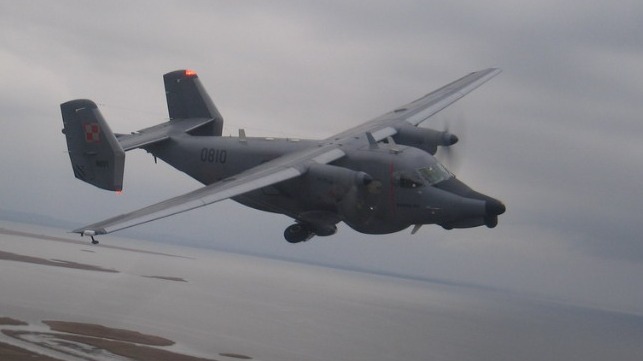Poland Denies "Provocative" Naval Maneuvers Near Nord Stream 2

The developers of the Nord Stream 2 pipeline have accused foreign naval forces of "provocative" activity in the vicinity of construction work. The controversial pipeline is about 93 percent complete, and two Russian pipelay vessels are on station and working on the project in Danish waters.
Andrei Minin, the branch director of Gazprom-run Nord Stream 2 AG, told TASS that "foreign warships and vessels were demonstrating higher activity" near the operation, and that "such actions are provocative and can lead to gas pipeline damage." He also accused Poland of deploying a military M-28 patrol aircraft to survey the site.
"The Polish Navy is not conducting provocative operations and has been carrying out its statutory tasks in agreement with international laws," responded the Polish Army's central command in a social media post. "M-28B Bryza planes regularly conduct patrol flights in the Baltic Sea region."
Poland strongly opposes the development of Nord Stream 2, which will give Gazprom a subsea alternative route for supplying natural gas to Western European customers. At present, that gas has to pass through overland pipeline networks in Poland and Ukraine, bringing in valuable transit fees and providing both nations - which do not always have cordial relations with Russia - a measure of energy security.
"Equally salient is the risk that Russia may one day deploy its naval forces along the pipelines’ routes on a national security pretext, leaving much of the Baltic Sea unnavigable, including for LNG carriers, cargo ships, the navies of the countries surrounding this body of water and NATO maritime forces. In such a scenario, the potential for escalation is clear," said Polish government spokesman Stanis?aw ?aryn in a recent op-ed.
The United States also opposes the pipeline's development, though the White House has not implemented any additional sanctions against project participants since the election of President Joe Biden. Germany strongly supprts the development of the pipeline, and the White House faces competing priorities between strengthening ties with a valuable ally in Berlin and blocking the project's completion.

that matters most
Get the latest maritime news delivered to your inbox daily.
For its part, Russia has expressed certainty that the pipeline will be finished by the end of the year.
"We are absolutely confident that the project will be completed and remain a symbol of healthy energy cooperation between Russia and EU countries for many years. In this regard, we surely expect no actions contradicting implementation of the project," said Russian Deputy Foreign Minister Alexander Grushko on Friday.
